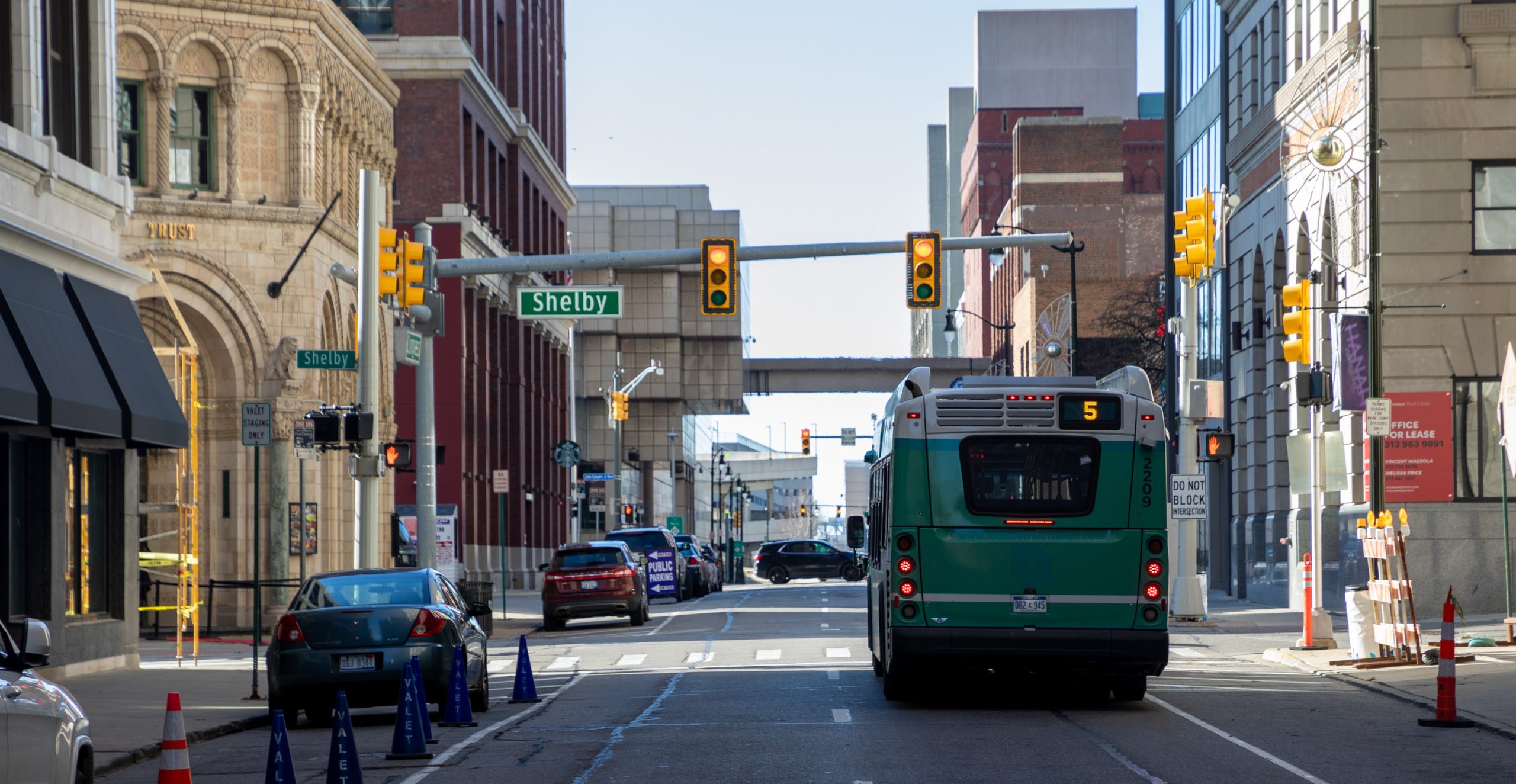Many high school students spend their time doing homework, hanging out with friends between classes and stressing about upcoming exams. Cayden Brown does all that — and he works as a part-time juvenile defense attorney for the 52nd District Court’s Teen Court Program in Oakland County.
In the juvenile diversion program, defendants are represented, prosecuted and tried by juries all composed of their peers, with judicial oversight and adult mentorship. The program relies on peer pressure to keep teens out of the traditional court system, with sentence options including written apologies, community service and counseling.
Me knowing that oppression, understanding that struggle and living that struggle daily, but having the resources, the tools, the knowledge and the understanding to combat that oppression on another’s behalf? It’s a beautiful thing, and it’s my duty.
Brown, 16, lives in Detroit and is a junior at Walled Lake Central High School. He’s involved in typical high school clubs: He’s a Model UN student delegate, president of his school’s African American Alliance and a student council representative. But outside of school, he focuses on addressing systemic issues in metro Detroit’s juvenile justice system through his work at the teen court and the organization he founded, the Trespass Project.
We chatted with Brown to hear his story.
This interview was lightly edited for length and clarity.
Outlier: Why is the issue of juvenile defense important to you?
Brown: The juvenile justice system — and the justice system as a whole — is pretty enigmatic. It’s something that has been systemically written in a foreign language, and a lot of us don’t understand. We often get trapped in it, especially for people who look like me.
When I go to court, I advocate on their behalf. I look at (the jury) in the eyes and tell them, “This a human being. They have had these struggles in their lives that you cannot imagine.” I bring a different perspective by being a 16-year-old of color. Seeing me in their space makes them pay attention to what’s going on and the mission because of my age and what I look like.
Me knowing that oppression, understanding that struggle and living that struggle daily, but having the resources, the tools, the knowledge and the understanding to combat that oppression on another’s behalf? It’s a beautiful thing, and it’s my duty.
You founded the Trespass Project in June to strengthen youth’s legal literacy. Why was this a necessary step in your work?
Legal literacy equals liberation. The Trespass Project’s mission is to increase that literacy. I get multiple people in positions of influence who are minorities and talk about their impact (with teens) when it comes to the legal realm. I have people who work at media companies, so they understand the media’s role in projecting the Black image to the world. I take somebody from each field so they are able to speak on the oppression (they face) and how they combat that while giving tips to others. This is not only for them to feel seen but also for (teens) to be equipped with the tools necessary (to thrive).
There are many systemic barriers for people of color in this country. So, the Trespass Project works to galvanize people of color to infiltrate those positions of power so they can actually make change they want to see. We often protest, advocate and do all these different things to make change. But one of the biggest ways to make change is to be in a position of influence, to have that final call.
How do you sustain taking on such difficult work knowing that you have your entire professional career ahead of you?
It’s my duty. It’s my duty to my ancestors. They fought so hard for the freedoms and liberties that we already have. It’s my job to bear that torch and continue that tradition because the fight is not over. If I have those abilities, I’m going to use them.
You never have to wait to make a change. Being young brings more attention so use whatever you’ve been gifted to your full ability.
Honestly, I have to remind myself often why I’m doing things because it’s pretty easy to get caught up. I have my whole life to do this. I can make change anytime. I’m young. But if God has put this idea in my brain, then I’m doing a disservice to the people around me, my community and all the people I couldn’t impact by not acting on that. He’s given me the resources to achieve that.
Don’t let anybody tell you you’ll have time to do it later. God gave you the dream today because he wants you to execute it today. You never have to wait to make a change. Being young brings more attention so use whatever you’ve been gifted to your full ability.
What is your favorite underrated spot in Detroit?
Food is always at the top of my head, so HopCat. If you haven’t been, you’re missing out.
What is your favorite fact about Detroit?
Detroit is home to the hymn of our culture. The Motown sound is a cultural artifact of the birthplace I’m proud to reside in.
What’s the first thing you think of when someone says “Detroit”?
The Lions. For a long time, they had a history of losing, but they’ve been doing well. I’m excited.
Want to shout out another Detroit do-gooder we should talk to? Email samya@outliermedia.org with your nomination.




